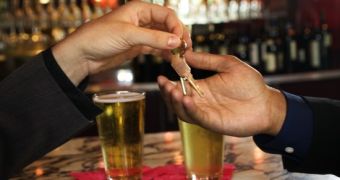Designated drivers are often not sober enough to get behind the wheel and safely drive their friends and family home, a new study in the Journal of Studies on Alcohol and Drugs says.
Researchers explain that, although they refrain from drinking too much, about a fifth of designated drivers indulge in sufficient alcohol to have their driving skills impaired.
EurekAlert reports that most of the designated drivers who drink work on the assumption that, as long as they are not feeling drunk, they can get behind the wheel without putting either themselves or their passengers in danger.
The same source informs us that ongoing legislation allows people to drive as long as their blood alcohol level is less that .08 percent.
However, several studies have shown that it takes a blood alcohol level of just .02 percent for individuals to start losing their ability to drive safely, and that .05 percent is more than enough for one's driving skills to be significantly impaired.
In other words, not feeling the “buzz” does not necessarily mean that one is fit to drive.
“People do try to use that [the 'buz'] as a measuring stick. But alcohol is insidious,” lead researcher Adam Barry of the University of Florida in Gainesville says.
More so given the fact that, when it comes to social outings, designated drivers almost always get to do their job of taking other people home well after sundown and thus drive at a time when their vision is affected by the lack of natural light.
The findings of this research are based on data collected while interviewing some 1,000 bar patrons in a college bar district.
165 of these people admitted to being the designated drivers, and alcohol breath tests revealed that roughly 40% of them had been drinking.
“If you're going to be a designated driver, you should abstain from alcohol use completely,” Adam Barry cautions.

 14 DAY TRIAL //
14 DAY TRIAL //